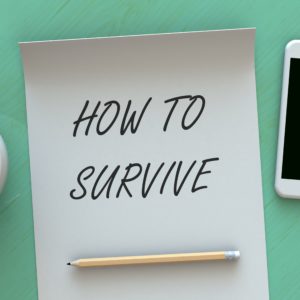Optometry school is full of milestones: from receiving your interview letter to accepting your offer of admission to writing your first exam. This past school year has been nothing short of a crazy roller-coaster ride: from living on my own for the first time to meeting more than 90 new faces to finding my way in the world of optometry. I thought I would take you through a survival guide filled with all the lessons I have learned in my first year as an optometry student.
1. Have an open mind when you are finding your place
Some people say the classmates you sit next to on the first day of orientation are the ones you will be friends with for the next four years. In a way, I believe this considering I sat next to my roommate, who I consider one of my closest friends, but I also think it is important to branch out of your comfort zone and try to meet as many people as possible. Now, don’t think I’m telling you that you have to introduce yourself to everyone in your class on day one, but keep an open mind in getting to know everybody. Orientation should not be a stressful experience, but rather a learning experience where you test yourself and reach beyond what feels safe.
2. Strive to succeed but lower your expectations from undergrad
 Coming from undergrad, you are continually trying to achieve those A and A+ marks to maintain your GPA. Although you should strive to do well, I think it is more important to understand concepts and absorb the information. You will be in more than six courses and more than four labs in your very first term, and it might seem incredibly overwhelming. Your limits will be put to the test, but remember there is an end to the madness.
Coming from undergrad, you are continually trying to achieve those A and A+ marks to maintain your GPA. Although you should strive to do well, I think it is more important to understand concepts and absorb the information. You will be in more than six courses and more than four labs in your very first term, and it might seem incredibly overwhelming. Your limits will be put to the test, but remember there is an end to the madness.
3. Everyone wants you to succeed, so do not be afraid to ask for help
When I entered optometry, I was wondering whether it would be competitive. If anything, it is the complete opposite; your class will work as a team to succeed together. This was incredibly refreshing coming from such a competitive environment in my undergrad. When I say everyone is there to help you, I also am referring to your professors: Ask questions, make appointments to see them, and even ask them for advice. Upper years also are tremendously helpful, so don’t be intimidated to talk to them. Optometry is a close-knit, small community and everyone wants you to flourish!
4. Do at least one thing a day for yourself

I think this is one of the most critical pieces of advice I can give you. For the most part, you are either in class all day or frantically trying to keep track of the full course load. Remember to take time for yourself. Even if it is for an hour of your day, do something you thoroughly enjoy, whether it is watching your favorite Netflix show, going to the gym or trying a new restaurant. Taking this time is crucial for your mental health and well-being and, in the scheme of things, will not cut into your studying time. You will be more productive with your study time as your brain will be recharged.
5. Try to get involved in at least one extracurricular.
There are loads of opportunities for you to get involved throughout the year, whether it be sporting events, joining clubs, attending social events and so much more. For me, that was running for trustee-elect of the AOSA. I also tried to attend as many optometry events as I could, to meet more students and most importantly have fun. Once you graduate, you are not going to look back and reminisce about your courses but rather the memories you make with friends and through getting involved in various events.

